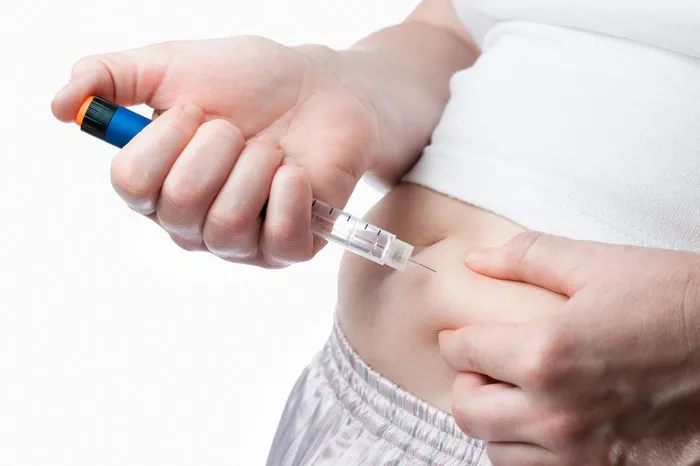Hypoglycemia, commonly known as low blood sugar, is a condition that occurs when the level of glucose in your blood drops below the normal range. Glucose, derived from the foods we eat, especially carbohydrates, is the primary source of energy for the body’s cells, including those in the brain. Therefore, maintaining normal blood glucose levels is crucial for overall health and well-being. This article delves into the various reasons why someone might experience hypoglycemia, exploring underlying causes, symptoms, risk factors, and management strategies.
What is Hypoglycemia?
Hypoglycemia is typically defined as a blood glucose level of less than 70 milligrams per deciliter (mg/dL). However, this threshold can vary slightly depending on individual circumstances and specific medical guidelines. The condition can present with a range of symptoms, from mild to severe, and can be life-threatening if not promptly and properly treated.
Causes of Hypoglycemia
Hypoglycemia can result from various factors, broadly categorized into those related to diabetes management and those unrelated to diabetes. Understanding the underlying causes is essential for effective prevention and treatment.
1. Diabetes Management-Related Causes
a. Excessive Insulin Administration
For individuals with diabetes, particularly those with type 1 diabetes and some with type 2 diabetes, insulin therapy is a critical component of treatment. Insulin helps cells absorb glucose from the bloodstream. However, taking too much insulin can cause blood glucose levels to plummet, leading to hypoglycemia.
b. Oral Hypoglycemic Agents
Certain oral medications used to manage type 2 diabetes, such as sulfonylureas and meglitinides, can cause hypoglycemia. These medications increase insulin production or activity, which can sometimes lead to an overshoot, resulting in low blood sugar levels.
c. Skipping Meals or Eating Too Little
When meals are skipped or delayed, or when food intake is insufficient, the body’s glucose supply can be depleted while insulin or oral medications continue to lower blood sugar levels. This imbalance can cause hypoglycemia.
d. Increased Physical Activity
Exercise increases glucose uptake by muscles, which can lower blood sugar levels. Without proper adjustments to medication or food intake, increased physical activity can lead to hypoglycemia in individuals managing diabetes with insulin or other medications.
2. Non-Diabetes-Related Causes
a. Alcohol Consumption
Alcohol can interfere with the liver’s ability to release glucose into the bloodstream. Excessive drinking, especially on an empty stomach, can lead to significant drops in blood glucose levels, resulting in hypoglycemia.
b. Critical Illnesses
Severe illnesses, particularly those affecting the liver, heart, or kidneys, can disrupt normal glucose production and regulation. Conditions such as liver disease, heart failure, and sepsis are known to cause hypoglycemia.
c. Hormonal Deficiencies
Hormones such as cortisol and glucagon play vital roles in regulating blood sugar levels. Conditions that lead to deficiencies in these hormones, such as adrenal insufficiency (Addison’s disease) and certain pituitary disorders, can cause hypoglycemia.
d. Insulinoma
Insulinomas are rare tumors of the pancreas that secrete insulin autonomously. These tumors can cause persistent or recurrent hypoglycemia due to excessive insulin production.
e. Reactive Hypoglycemia
This condition occurs when blood sugar levels drop after eating, often due to an exaggerated insulin response. It is typically seen a few hours after a meal, particularly one high in carbohydrates.
f. Eating Disorders
Anorexia nervosa and other eating disorders can lead to severe nutritional deficiencies and erratic food intake, which can result in hypoglycemia.
Symptoms of Hypoglycemia
Hypoglycemia manifests through a variety of symptoms that can be categorized into two main groups: adrenergic (related to the release of adrenaline) and neuroglycopenic (related to brain dysfunction due to low glucose levels).
Adrenergic Symptoms
These symptoms result from the body’s response to hypoglycemia and include:
- Trembling or shaking
- Sweating
- Anxiety or nervousness
- Palpitations (rapid or irregular heartbeat)
- Irritability
- Hunger
Neuroglycopenic Symptoms
These symptoms arise when the brain is deprived of glucose and include:
- Confusion
- Difficulty concentrating
- Dizziness
- Weakness or fatigue
- Blurred vision
- Seizures
- Loss of consciousness
The severity and combination of these symptoms can vary based on the rate and extent of the drop in blood glucose levels.
Risk Factors for Hypoglycemia
Several factors can increase the risk of developing hypoglycemia, including:
1. Diabetes-Related Factors
- Intensive Insulin Therapy: Individuals on tight glycemic control regimens are at a higher risk.
- Erratic Eating Patterns: Irregular meal timing and skipping meals can predispose one to hypoglycemia.
- Variable Physical Activity: Inconsistent exercise patterns without proper adjustments in medication or food intake.
- Alcohol Consumption: Drinking alcohol without eating can significantly increase the risk.
2. Non-Diabetes-Related Factors
- Hormonal Imbalances: Conditions affecting adrenal or pituitary glands.
- Liver or Kidney Diseases: Impaired glucose production or clearance.
- Certain Medications: Drugs like quinine, used for treating malaria, can lower blood sugar levels.
- Insulin-Secreting Tumors: Presence of insulinomas.
Diagnosis of Hypoglycemia
The diagnosis of hypoglycemia involves confirming low blood glucose levels while the patient is experiencing symptoms, and observing symptom relief after raising blood glucose levels. This is known as Whipple’s triad:
- Documented low blood glucose level.
- Symptoms consistent with hypoglycemia.
- Relief of symptoms after administration of glucose.
Blood tests, including fasting glucose levels, insulin levels, and C-peptide levels, can help determine the underlying cause. In some cases, additional tests such as a prolonged fast or imaging studies may be necessary to identify insulinomas or other rare causes.
Management of Hypoglycemia
Effective management of hypoglycemia involves immediate treatment of acute episodes, long-term strategies to prevent future episodes, and addressing the underlying cause.
Immediate Treatment
For mild to moderate hypoglycemia, the “15-15 rule” is often recommended:
- Consume 15 grams of fast-acting carbohydrates, such as glucose tablets, fruit juice, regular soda, or candies.
- Wait 15 minutes and recheck blood glucose levels.
- Repeat if blood glucose levels remain below 70 mg/dL.
Severe hypoglycemia, characterized by inability to consume food or drink, loss of consciousness, or seizures, requires emergency treatment:
- Glucagon Injection: Caregivers or family members should be trained to administer glucagon if the individual is unconscious.
- Emergency Services: Call for medical help if there is no immediate response to glucagon or if glucagon is unavailable.
Long-Term Strategies
For Individuals with Diabetes
- Regular Monitoring: Frequent blood glucose checks to identify patterns and prevent hypoglycemia.
- Adjusting Medication: Working with a healthcare provider to adjust insulin or oral medications based on lifestyle changes, eating patterns, and physical activity levels.
- Education: Learning to recognize early symptoms of hypoglycemia and understanding how to treat them promptly.
For Non-Diabetes Causes
- Address Underlying Conditions: Treating hormonal deficiencies, managing liver or kidney disease, and removing insulin-secreting tumors if present.
- Dietary Adjustments: Eating small, frequent meals and avoiding high-carbohydrate foods that can lead to reactive hypoglycemia.
- Avoiding Alcohol: Reducing or eliminating alcohol consumption, particularly on an empty stomach.
Preventive Measures
Prevention strategies for hypoglycemia should be tailored to the individual’s specific situation and underlying causes. General preventive measures include:
- Balanced Diet: Eating a well-balanced diet with regular meals and snacks to maintain stable blood sugar levels.
- Medication Management: Taking medications as prescribed and making adjustments based on blood glucose monitoring results and lifestyle changes.
- Regular Exercise: Engaging in consistent physical activity while adjusting food intake and medications as necessary.
- Education and Awareness: Continuous education about hypoglycemia, recognizing early symptoms, and having a plan in place for quick treatment.
Conclusion
Hypoglycemia is a multifaceted condition with various potential causes ranging from diabetes management issues to non-diabetes-related factors. Understanding these causes, recognizing symptoms, and implementing effective management and preventive strategies are crucial for maintaining optimal health and preventing complications associated with low blood sugar levels. Continuous education, regular monitoring, and personalized medical care are the cornerstones of managing hypoglycemia effectively. If you suspect you have hypoglycemia or are experiencing symptoms, it is important to consult with a healthcare provider to determine the underlying cause and appropriate treatment.
Related topics:
What Causes Hypoglycemia In Pregnancy?
























